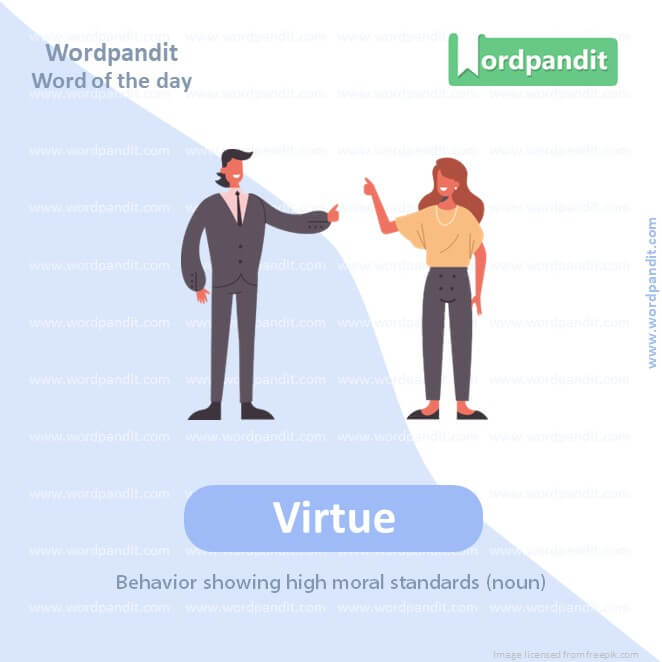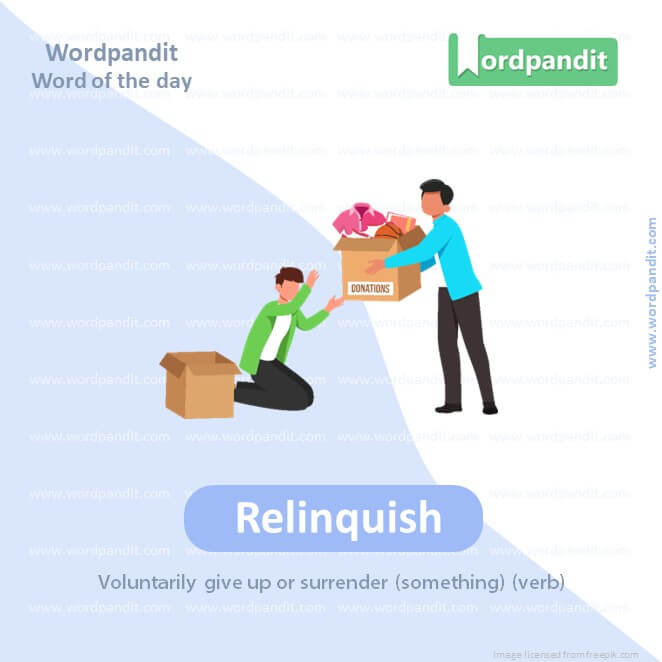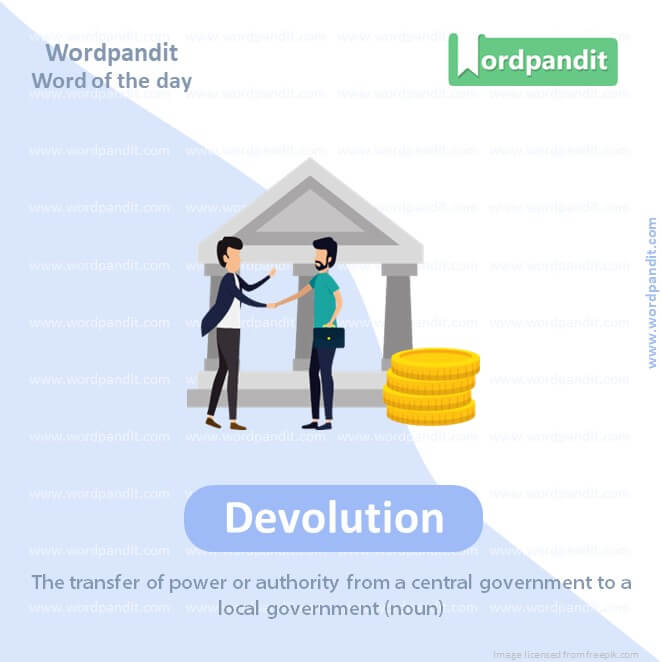Daily Vocabulary Words: List of Daily Used Words in Leading Indian Newspapers
Hi there. Welcome to this special section @ Wordpandit. Our endeavour here is straightforward: highlighting daily vocabulary words that you would come across in leading newspapers in the country. We have included the following newspapers in our selection:
• The Times of India
• The Economic Times
• Hindustan Times
• Mint
• Indian Express
We are putting in extensive work to develop your vocabulary. All you have to do is be regular with this section and check out this post daily. This is your repository of commonly used words; essentially, we are posting a list of daily used words. Hence, this has significant practical application as it teaches you words that are commonly used in leading publications mentioned above.
Visit the website daily to learn words from leading Indian newspapers.
WORD-1: Counterintuitive
CONTEXT: Work hard, relax hard – counterintuitive as it may sound, the Indian workplace and employee are usually not geared to this idea.
SOURCE: Economic Times
EXPLANATORY PARAGRAPH: Imagine you’re learning how to ride a bike, and someone tells you that to balance, you should lean towards the direction you’re falling. It feels strange because your instincts tell you to do the opposite, but when you try it, you find out it works. That goes against what you would expect, but it’s actually true. That kind of idea or concept, which goes against common sense or intuition, is called “counterintuitive.” It’s like when something seems backwards or opposite to what you’d think, but it’s true.
MEANING: Contrary to what intuition or common sense would suggest; going against what is expected or seems logical (adjective).
PRONUNCIATION: koun-ter-in-TOO-i-tiv
SYNONYMS: paradoxical, unexpected, contrary, unconventional, surprising, contrary, unexpected
USAGE EXAMPLE:
1. It may seem counterintuitive, but sometimes, doing less can lead to better results.
2. The solution to the puzzle was counterintuitive, requiring a shift in perspective.
3. In physics, some phenomena can be counterintuitive until explained by scientific principles.
4. The strategy seemed counterintuitive at first, but it proved to be effective in the long run.

WORD-2: Virtue
CONTEXT: Indians, according to several studies over the past decade, are unable to unplug from work. Worse, this is considered a virtue.
SOURCE: Economic Times
EXPLANATORY PARAGRAPH: Imagine you have a friend who always tells the truth, even when it’s difficult, and who always helps others without expecting anything in return. That quality of being honest, kind, and morally good, like your friend, is called “virtue.” It’s like having a set of qualities or behavior that are considered morally good or desirable.
MEANING: Behavior showing high moral standards (noun).
PRONUNCIATION: vur-choo
SYNONYMS: goodness, morality, righteousness, integrity, goodness, moral excellence, uprightness
USAGE EXAMPLE:
1. Honesty is a virtue that is valued in every aspect of life.
2. The teacher praised the student for demonstrating kindness and virtue.
3. He believed in leading a life of virtue, guided by principles of honesty and compassion.
4. Courage is often seen as a virtue because it allows people to stand up for what they believe in.

WORD-3: Culprit
CONTEXT: But the real culprit is the Indian workplace. Despite the legal requirement of paid vacation time, it is not onboard with the idea of vacations.
SOURCE: Economic Times
EXPLANATORY PARAGRAPH: Imagine you’re playing detective with your friends, trying to solve the mystery of who ate the last cookie from the jar. After examining the evidence, you discover that it was your little sister who sneaked into the kitchen and took it. That person who is responsible for doing something wrong or causing a problem, like eating the last cookie, is called the “culprit.” It’s like finding out who’s to blame for something that went wrong.
MEANING: A person responsible for a crime or misdeed (noun).
PRONUNCIATION: KUHL-prit
SYNONYMS: offender, wrongdoer, perpetrator, criminal, guilty party, culprit, suspect
USAGE EXAMPLE:
1. After investigating the theft, the police identified the culprit.
2. The faulty wiring was the culprit behind the house fire.
3. Finding the culprit behind the vandalism proved to be a challenging task.
4. The culprit behind the prank was finally revealed during the class meeting.
WORD-4: Sluggishly
CONTEXT: Inflation is sluggishly heading towards its target, and RBI may have to delay its anticipated shallow rate cuts on account of food price volatility.
SOURCE: Economic Times
EXPLANATORY PARAGRAPH: Imagine you’re trying to run a race, but you’re feeling tired and your legs feel heavy, like you’re moving through thick mud. That slow and lethargic movement, where you’re struggling to move quickly, is called “sluggishly.” It’s like feeling like everything is moving in slow motion, making it hard to keep up the pace.
MEANING: In a slow, lazy, or lethargic manner; moving or progressing with a lack of energy or speed (adverb).
PRONUNCIATION: SLUHG-ish-lee
SYNONYMS: slowly, lazily, lethargically, slowly, tardily, languidly, slowly
USAGE EXAMPLE:
1. The car moved sluggishly up the steep hill.
2. He worked sluggishly through the afternoon, feeling tired and unfocused.
3. The economy recovered sluggishly after the recession.
4. The project progressed sluggishly due to a lack of resources and motivation.
WORD-5: Imperfections
CONTEXT: Factor markets like land and labour remain caught in legacy imperfections despite the present government’s attempts to reform them.
SOURCE: Economic Times
EXPLANATORY PARAGRAPH: Imagine you’re looking at a beautiful painting, but when you look closely, you notice tiny mistakes or flaws in the brushwork. Those small flaws or mistakes, like uneven lines or smudges, are called “imperfections.” It’s like little errors or blemishes that make something less than perfect.
MEANING: Flaws, errors, or blemishes that detract from the perfection or completeness of something; the state of being imperfect (noun).
PRONUNCIATION: im-puhr-FEK-shuhns
SYNONYMS: flaws, defects, blemishes, faults, shortcomings, flaws, flaws
USAGE EXAMPLE:
1. She embraced her imperfections as part of what made her unique.
2. The artist’s work was characterized by its imperfections, which added to its charm.
3. The mirror reflected his imperfections, highlighting every scar and wrinkle.
4. Perfection is unattainable because everyone has their own imperfections.
WORD-6: Ratchet
CONTEXT: To avoid the middle-income economy trap, India will require similar manufacturing capacity. The country will have to ratchet up its charm for foreign investors.
SOURCE: Economic Times
EXPLANATORY PARAGRAPH: Imagine you’re trying to fix a loose bolt on your bike, and you use a wrench to tighten it. As you turn the wrench, it clicks and moves in one direction, making it easy to tighten the bolt but difficult to loosen it. That mechanical tool, which allows you to move in one direction only, is called a “ratchet.” It’s like a tool that lets you make progress in one direction while preventing backward movement.
MEANING: A mechanical device consisting of a toothed wheel or bar with a pawl that engages with the teeth to prevent backward movement or allow forward movement in one direction only (noun). It can also refer to a process or situation that progresses or increases incrementally and irreversibly.
PRONUNCIATION: RACH-it
SYNONYMS: gear, wrench, tool, mechanism, increment, escalate, advance
USAGE EXAMPLE:
1. He used a ratchet to tighten the bolts on the car engine.
2. The political situation continued to escalate, with each side ratcheting up its rhetoric.
3. The company’s profits ratcheted up year after year, reaching record levels.
4. The conflict between the two nations seemed to be stuck in a ratchet, with tensions steadily increasing.
WORD-7: Charm
CONTEXT: To avoid the middle-income economy trap, India will require similar manufacturing capacity. The country will have to ratchet up its charm for foreign investors.
SOURCE: Economic Times
EXPLANATORY PARAGRAPH: Imagine you meet someone who has a warm smile, a friendly attitude, and a way of making everyone feel comfortable around them. That special quality of being pleasant, charismatic, and likable, like your new friend, is called “charm.” It’s like having a magical aura that draws people to you and makes them enjoy your company.
MEANING: The quality of being attractive, pleasing, or charismatic, often characterized by a warm or engaging personality (noun).
PRONUNCIATION: CHAHRM
SYNONYMS: charisma, allure, appeal, magnetism, enchantment, attractiveness, appeal
USAGE EXAMPLE:
1. His charm and wit made him popular at social gatherings.
2. The old house had a certain charm that attracted buyers despite its flaws.
3. She used her charm to persuade others to support her cause.
4. The actor’s charm captivated audiences and won him many fans.

WORD-8: Grudgingly
CONTEXT: States grudgingly relinquish their resource-raising capacity and resent any loss of agency over expenditure.
SOURCE: Economic Times
EXPLANATORY PARAGRAPH: Imagine your friend asks to borrow your favorite book, the one you’ve read over and over, and you’re not sure you want to lend it out. You agree to lend it to them, but you do so reluctantly, feeling a bit annoyed or resentful. That feeling of doing something reluctantly or with reluctance, even though you’re not happy about it, is called “grudgingly.” It’s like agreeing to do something but not really wanting to.
MEANING: In a reluctant or resentful manner, showing unwillingness (adverb).
PRONUNCIATION: gruhj-ing-lee
SYNONYMS: reluctantly, unwillingly, resentfully, begrudgingly, grudgingly, unwillingly
USAGE EXAMPLE:
1. He agreed to help his brother move, but he did so grudgingly.
2. She accepted the apology grudgingly, still feeling hurt by the incident.
3. The employees complied with the new policy grudgingly, feeling it was unfair.
4. He paid the fine grudgingly, feeling it was unjustly imposed.

WORD-9: Relinquish
CONTEXT: States grudgingly relinquish their resource-raising capacity and resent any loss of agency over expenditure.
SOURCE: Economic Times
EXPLANATORY PARAGRAPH: Imagine you’re holding onto a balloon, but it slips out of your hand and starts to float away. You could try to grab it back, but instead, you decide to let it go and watch it drift into the sky. That act of giving up or letting go of something, like the balloon, is called “relinquish.” It’s like releasing your hold on something and allowing it to move away or be taken by someone else.
MEANING: Voluntarily give up or surrender (something) (verb).
PRONUNCIATION: ri-LING-kwish
SYNONYMS: surrender, give up, abandon, yield, cede, renounce, surrender
USAGE EXAMPLE:
1. The general refused to relinquish control of the city despite mounting pressure.
2. She reluctantly relinquished her role as team captain due to injury.
3. He decided to relinquish his rights to the property and move away.
4. The company agreed to relinquish its monopoly on the market in exchange for certain concessions.

WORD-10: Devolution
CONTEXT: The Centre is trying moral policing to drive fiscal prudence, but is not in a position to lead by example. This will be a subtext for further devolution.
SOURCE: Economic Times
EXPLANATORY PARAGRAPH: Imagine you have a big project to do for school, and you decide to divide the work among your group members. Each person takes on a specific task, like research, writing, or presenting. That process of passing responsibility or authority from one person or group to another, like sharing the workload with your classmates, is called “devolution.” It’s like decentralizing power or tasks to distribute them more evenly.
MEANING: The transfer of power or authority from a central government to a
local government (noun).
PRONUNCIATION: dee-vuh-LOO-shuhn
SYNONYMS: decentralization, delegation, distribution, transfer, handing over, devolvement, devolution
USAGE EXAMPLE:
1. The devolution of decision-making authority to local governments increased efficiency and responsiveness.
2. The company announced plans for devolution, giving more autonomy to regional offices.
3. Devolution of responsibilities to individual team members empowered them to take ownership of their tasks.
4. The devolution of powers to regional governments was a key feature of the new constitution.
Vocabulary list
In navigating the seas of language learning, a ‘vocabulary list’ can often be a dependable guiding star. These collections of words serve as a focused learning tool, yet the technique of mastering a ‘vocabulary list’ effectively requires more than simple perusal. It calls for a smart, sustained approach that amalgamates understanding, memory, and application.
Exploring a ‘vocabulary list’ should be more than a one-way trip. It ought to be more like a round trip, wherein you learn the words, come back to review them, and then set out again for a new voyage. This repeated interactive way of exploring the ‘vocabulary list’ aids in solid memory retention and effective learning.
Next, while dealing with a ‘vocabulary list’, employing memory-boosting techniques can bolster your retention substantially. Here, mechanisms like spaced repetition systems and flashcards can simplify and streamline the process. Moreover, associating words on your ‘vocabulary list’ with visual cues or personal stories can help your brain make strong connections, strengthening your recall ability.
However, the most crucial aspect of learning from a ‘vocabulary list’ is active application. Conquering a list without using the words in real-world contexts might leave you with fleeting knowledge. Hence, make it a point to integrate these learnt words into your daily interactions, be it on social media, in email exchanges, or casual conversations. The regular utilization reinforces your understanding and brings the ‘vocabulary list’ to life.
Conclusively, the ‘vocabulary list’ is a treasure trove in a language learner’s quest, waiting to be unlocked strategically. Through the trinity of review, memory-enhancing techniques, and active application, one can master any ‘vocabulary list’. So, take charge of your learning journey and set sail with your ‘vocabulary list’, charting the vast and fascinating seas of language.










